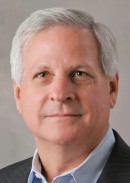Guest Column: Are Christians discriminated against in the United States?
 (Orlando Sentinel, August 2, 2019)
(Orlando Sentinel, August 2, 2019)
By Robert J. Ray
Over the past few years, I’ve increasingly heard fellow Christians complaining that our faith is under assault. I’ve even heard it claimed that Christians are the most mistreated faith group in the United States.
When delivering a couple of graduation commencement addresses this past spring, Vice President Mike Pence warned the graduates at the Christian universities where he was speaking that it has become “acceptable, even fashionable, to malign traditional Christian beliefs” and “to ridicule and even discriminate against people of faith.”
I must admit that respect for the Christian brand has indeed taken a hit over the past few years. As a Christian, I find that disturbing. But I also have to admit that it hasn’t happened in a vacuum. The sad fact is, various wearers of the Christian label have, in varying degrees, damaged our entire brand by their actions and attitudes.
Onlookers don’t need much exposure to Westboro Baptist Church before concluding that if such vitriolic epithets and antics represent true Christianity, then Christianity is a religion to be avoided if not actively opposed.
While the Westboro Baptists clearly are extremists, some other groups wearing the Christian label have a similar but more subtle modus operandi. Their rhetoric and the laws and policies they promote give the impression that their prime goal is making life difficult for those they consider vile sinners.
So is there any insight that would be equally helpful to Christians and non-Christians, believers and non-believers?
In Deuteronomy 25:14, Moses issued a highly practical and truly insightful prohibition: “Do not have two differing measures in your house—one large, one small. You must have accurate and honest weights and measures.”
In other words, don’t have two purportedly 16-ounce scoops — one that holds only 14 ounces (which you use when selling “16 ounces” of grain), and one that holds 18 ounces (which you use when buying “16 ounces” of grain).
The principle is clear: Avoid double standards. Ensure evenhandedness, fairness and equity for all.
We read in the Torah: “Do not show favoritism to a poor person in a lawsuit.” Conversely, “Do not deny justice to your poor people in their lawsuits” (Deuteronomy 23: 3, 6). In short, have a fixed standard that applies equally to those who share your family lineage, your race, your religion, your political affiliation, your nationality — as well as to those with whom you have nothing in common.
That was Jesus’ point when he propounded what we call the Golden Rule: “In everything, do to others what you would have them do to you” (i.e. the measure we use in dishing it out should be the measure we’d hope would be used when others are dishing it back — no double standards).
Every form of ill will in our pantheon of human prejudice and bigotry, when carefully analyzed, has at its root either an outright refusal or unwitting failure to employ a consistent standard. Racism — double standard. White supremacy — double standard. Sexism — double standard. Xenophobia — double standard. Christian nationalism — double standard. Hypocrisy in all its forms — double standard. Damning sin in one person while excusing the same behavior in someone else — double standard.
And speaking of sinners, Jesus seems to take pride in the fact that God “causes his sun to rise on the evil and the good, and sends rain on the righteous and the unrighteous” (Matthew 5:45)–which is the epitome of evenhandedness. No double standard there.
Moses mandated consistent measurement standards. Jesus added a threat: “Do not judge, or you too will be judged. For in the same way you judge others, you will be judged, and with the measure you use, it will be measured to you” (Matthew 7:1, 2).
If we Christians are feeling mistreated and discriminated against, perhaps our very first response should be to seriously ask ourselves: Is it at all possible that we’re simply having thrown back at us what too many of us have been guilty of dishing out to others?
Robert J. Ray, a risk-management consultant, is a member of the executive committee of the Interfaith Council of Central Florida.
